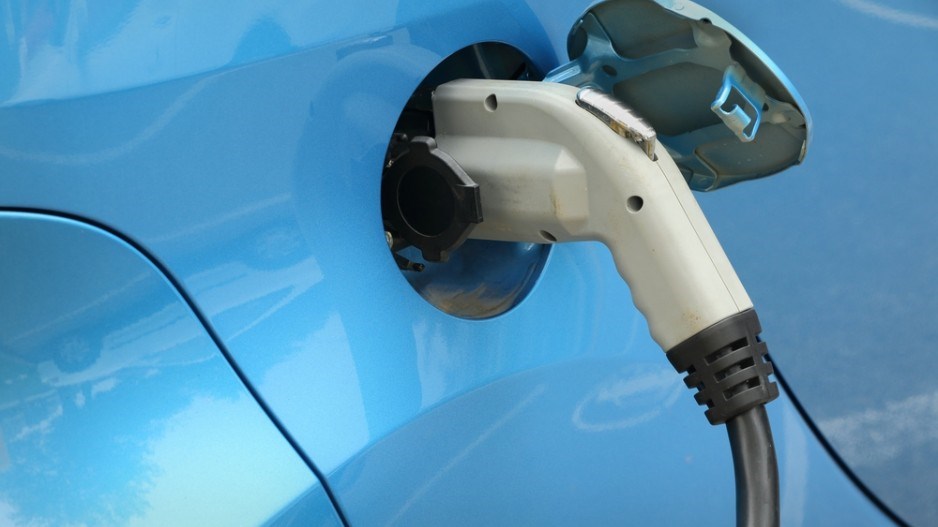Three hundred dollars isn’t much but the mandatory cost for an electric vehicle (EV) charging station is the latest ding in government fees and regulations that now add more than $220,000 to the cost of a typical new Vancouver condominium, according to industry studies.
Last year electric vehicle represented 0.9% of total vehicle sales in British Columbia and they make up just 0.2% of vehicles on B.C. roads, according to Statistics Canada and Fleetcarma data. Yet, starting in 2019, 100% of new condo buyers in Vancouver will pay to have an electric car charging station installed in their parking garage.
Anne McMullin, president and CEO of the Urban Development Institute Pacific Region wonders why condo buyers should pay for something that benefits a utility, and electric vehicle manufacturers.
The answer is apparently blowing in the hurricane of add-on costs buffeting buyers in Canada’s most expensive housing market.
Government taxes and fees now total more than 26%, or $220,256 of the total $840,000 cost of a typical new 700-square-foot-Vancouver condo apartment, said appraisal and tax expert Paul Sullivan, a senior partner at Burgess, Cawley, Sullivan and Associates Ltd.
Sullivan presented his analysis to the Greater Vancouver Board of Trade’s Housing Forum 2018, held May 25.
A separate CD Howe Report in May found that government regulations and charges add an extra $644,000 to the cost of building a single-family house in Metro Vancouver.
“When expressing their deep concerns over housing affordability, why haven’t governments taken a long hard look in the mirror?” Sullivan asked.
He noted that along the Broadway corridor, where the new SkyTrain extension will be built, the City of Vancouver recently proposed a new development charge of between $330 to $425 per square foot above existing zoning for every new condo built.
Already, Sullivan told the forum, government costs and fees account for $312 of the average $1,200 per-square-foot cost of a new Vancouver condominium.
“One of the biggest factors behind our housing affordability problem is government piling on more taxes and fees,” Sullivan said.
Sullivan’s analysis includes City of Vancouver municipal fees, charges and taxes, the new and increased provincial tax measures on home sales, Metro Vancouver’s increased regional water and sewer charges, TransLink’s new regional development cost charge for transit, delays in getting permit approvals and the federal GST.
Fees and charges can range depending on where a project is located, with downtown Vancouver projects facing even higher charges. For the purpose of the analysis, the announced provincial Speculation Tax was included, pending details of the specific legislation expected later in 2018.
The foreign-buyer tax, payroll taxes on labour and taxes on materials were not included in the breakdown.
Rod Yeoh, a principal with Dialog, which has designed many low-energy buildings, told a Buildex 2017 meeting that Vancouver’s new zero emissions bylaw, that came into effect last May and is now being rolled out, will add at least 15% to the cost of a new concrete condominium when fully implemented.
McMullin noted that while the mandatory charging stations aren’t included until January 1, 2019, she is concerned that condo buyers are again expected to foot the bill.
“If electric vehicles are expected to increase in popularity as predicted, then it would certainly make sense to have BC Hydro provide the infrastructure to residents recouped through the rate, much like a gas station company would,” she suggested.




